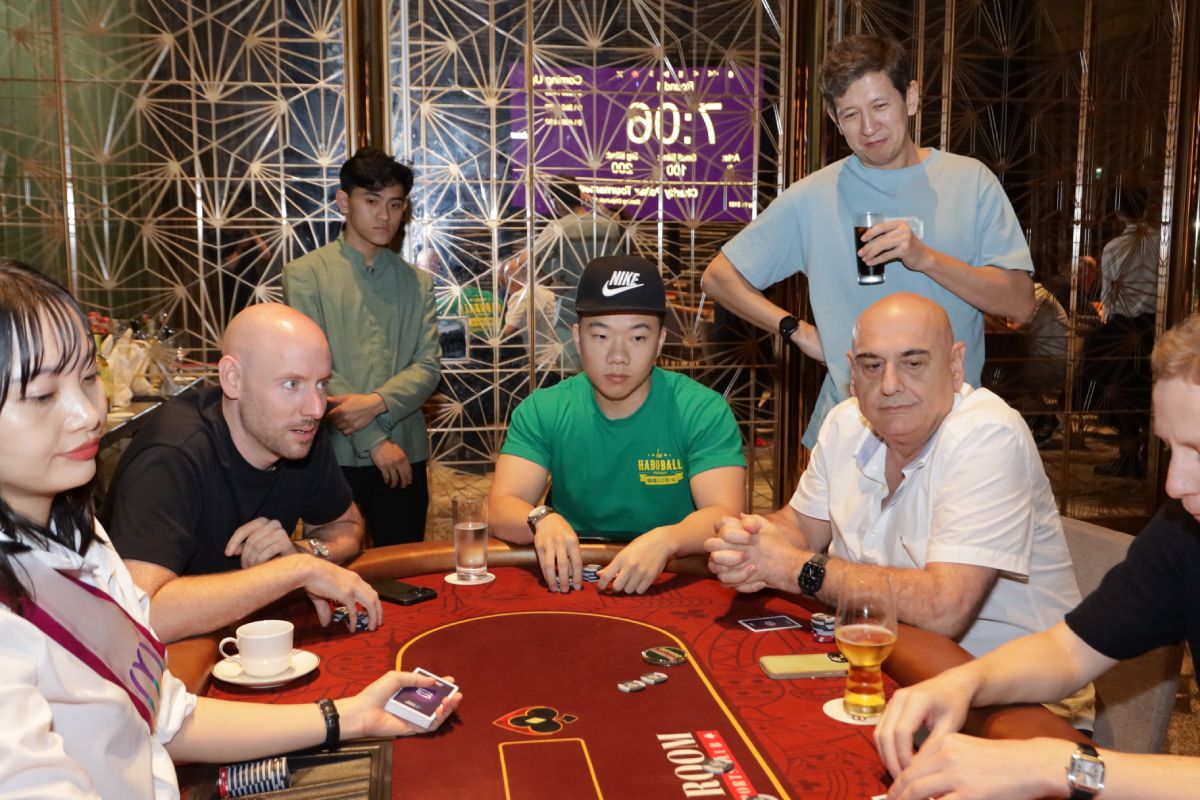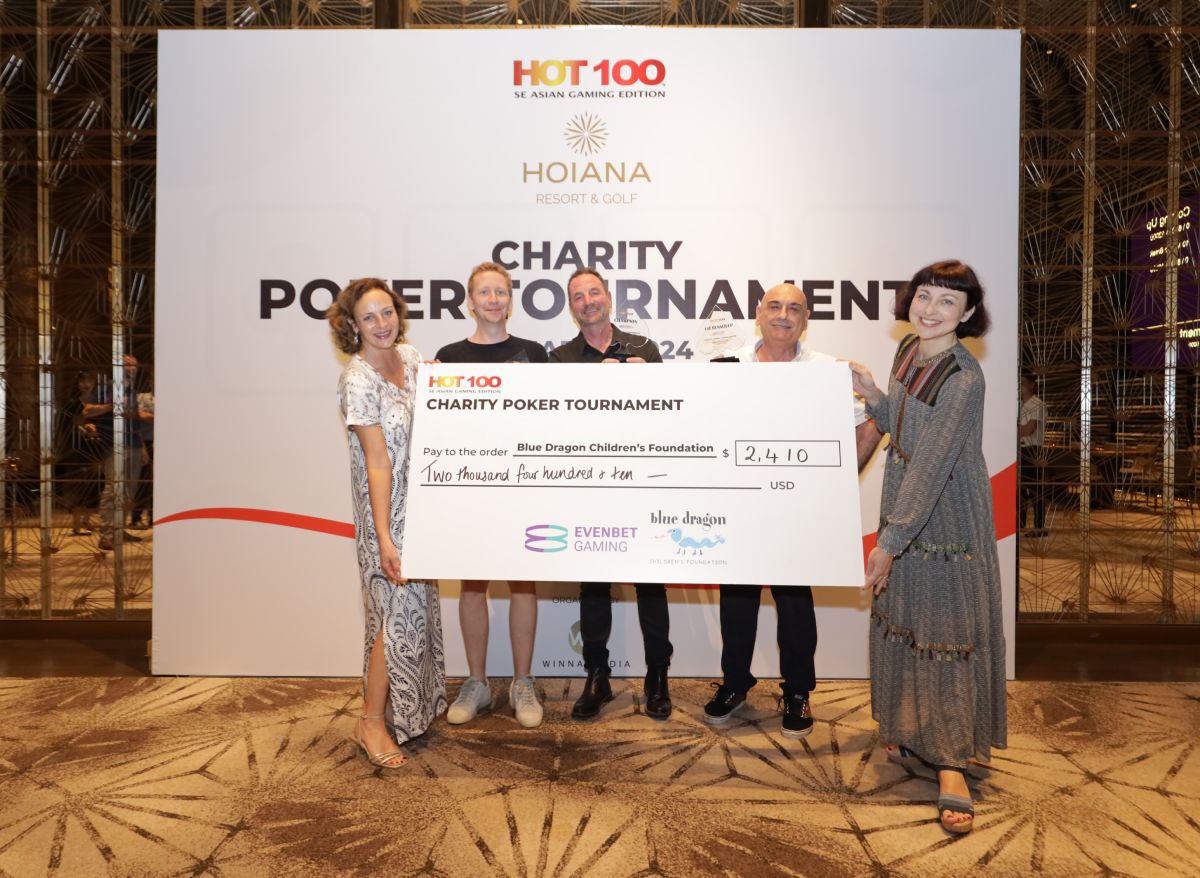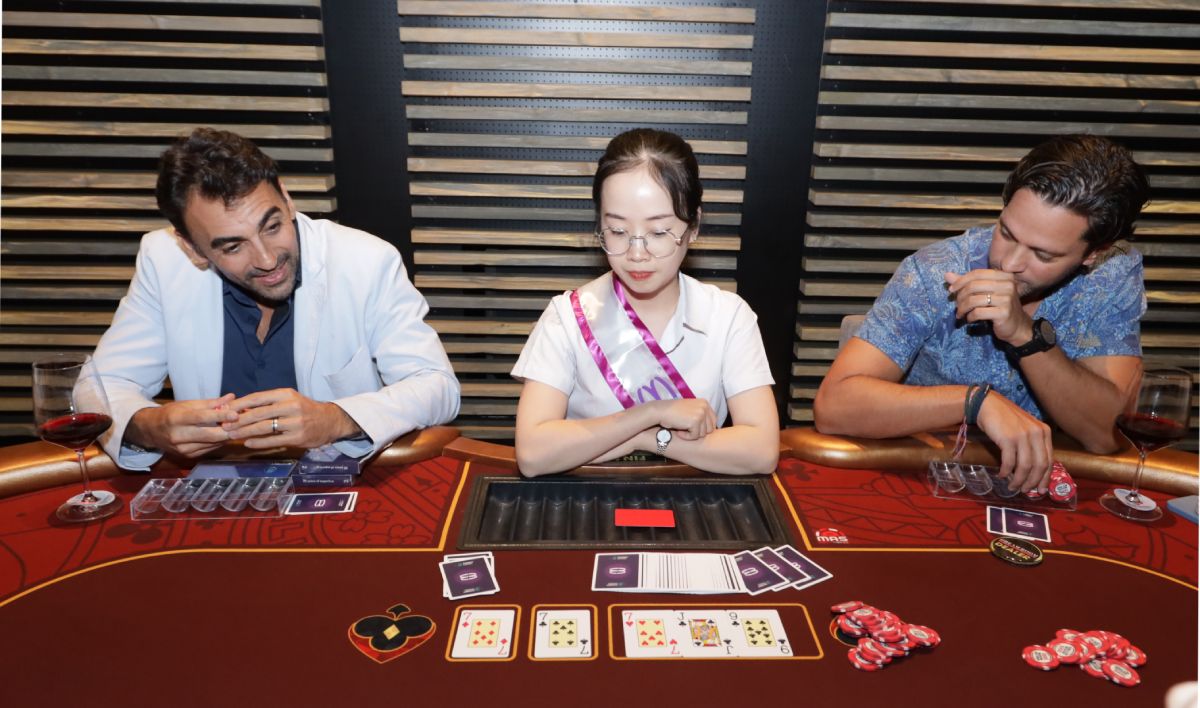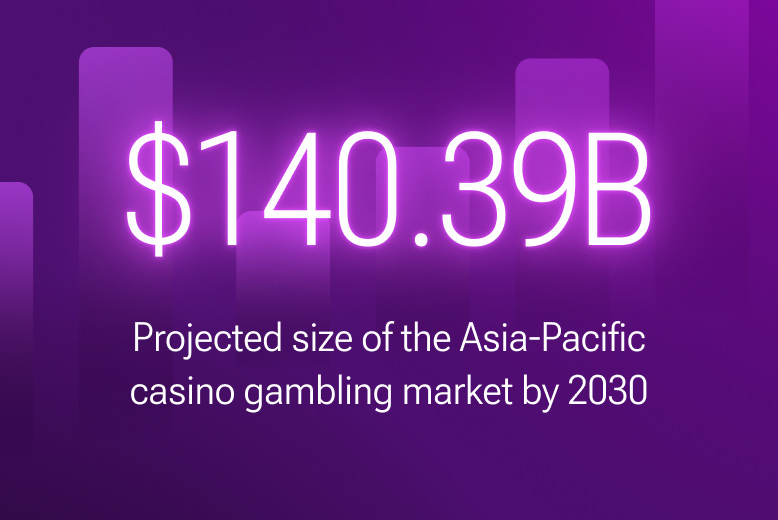According to Statista, the Southeast Asian gaming market is expected to generate a sum of USD 1.23bn, with average revenue per user reaching USD 207.90 by 2024. However, the local market experiences a number of contradictory trends that need to be considered if you plan to operate in this region. Dmitry Starostenkov, CEO at EvenBet Gaming, and Julia Panina, Head of Product Marketing, discussed the specifics of the Asian gambling business.
Which games are popular in Southeast Asia?
Dmitry:
Among card games, in addition to varieties of poker such as Hold’em and Omaha, popular worldwide, traditional local games like Big 2 and Badugi are popular in this region. The game Guandan is also popular. It’s a family game, but now it gradually gains popularity in both online and offline casinos, its popularity becoming comparable to mahjong and blackjack. The situation is similar to Rummy in India, which was also a family game, but it started to capture the market in the region. Perhaps, the same can be repeated with Guandan.
Julia:
Traditionally, games with live dealers occupy a significant share in Asia. However, their share has been rapidly decreasing lately. At the same time, slots are growing in popularity, although they have a certain specificity.
The thing is, there is generally a low level of trust in online gaming mechanisms in Asia. Of course, operators working with certified random number generators, like our software has, offer fair play. But this can only be controlled in the absolutely legal and regulated sector, and since grey and black schemes are widespread in the region, the average person does not trust the online software in comparison to land-based casinos. This has led to the growing popularity of the remote players format. The essence of this format is that local casinos purchase slot machines. The player reserves such a machine online and plays remotely, watching it through the camera.

You recently participated in the HOT100 SE Asian Gaming Edition. Such events primarily provide an opportunity to network with industry participants. Are there any specific networking culture aspects at such events in Asia?
Dmitry:
The networking culture in Asia is quite different and doesn’t easily blend with European networking practices. Therefore, local business representatives and Europeans usually attend different events. For instance, at HOT100 Asia, I already knew about 80% of the participants, and most of them were either Europeans looking to work in Asia or expats from Europe who are already working in Asia.
Julia:
The language issue is indeed challenging. People from different countries find it difficult to communicate, as Asian languages are hard to learn, even if it’s a neighbouring country’s language. Therefore, English holds a special status in this region as the language of international communication.
Local representatives do attend such events, but there are indeed few of them, and they behave quite modestly. They rarely engage in conversations and mostly listen. I was surprised when one of them suddenly approached me and started talking about the industry.

Is it easy for Western businesses to enter the Asian market?
Dmitry:
To do this, you need to establish contacts with local businesses, but they don’t easily engage. You can’t just advertise online and wait for an application. Direct sales with direct personal contact play a dominant role here. Like in Brazil, referral services work best. The reseller institute works well: many do business by reselling casino APIs.
Services of intermediaries who connect software providers with operators are in high demand. This usually happens at various closed parties, where you can discuss matters without prying eyes.
Julia:
Yes, and just like in Brazil, it’s quite difficult to withdraw money from Asia, so there are many offers of various payment solutions in the market that help solve this problem.
What is the gambling landscape in the legal field of Asia?
Dmitry:
One of the main issues is the lack of regulation. In many countries, online gambling is either prohibited or under pressure. This is another possible reason why local operators participate less in industry events. Many who earn well in this business do so illegally and prefer not to draw attention to themselves.
Julia:
It’s worth adding that the situation may and will change in the future. At HOT100, we listened to a presentation that convincingly led to the idea that regulation in Asia is inevitable. Perhaps it will happen later in Vietnam, but it will happen there too.
In Vietnam, it should be noted that land-based casinos are already legal. This business requires significant investment, and casinos can only be located in certain zones away from major cities, but at least this is already legal.

But there are countries in Asia where online gambling is legal. How actively do people use this opportunity there?
Dmitry:
Currently, there is a boom in legal iGaming business in the Philippines, but the situation is more complex in other countries. Even in many countries like Vietnam, where land-based casinos are legal, online gambling is prohibited. In places where it is allowed, operators often proceed cautiously regarding China, as Chinese citizens frequently become their players, which leads to dissatisfaction from Chinese authorities.
The thing is, citizens of China massively connect to the game via VPN, and consequently, money flows out of the country. Many operators used to focus on traffic from China, but China has started actively fighting this by limiting financial transactions, so now they are looking for ways to enter other markets.
Julia:
The situation varies from country to country. If you look at Google search statistics regarding online poker, you will find countries like Indonesia and Malaysia at the top, yet gambling there is strictly prohibited. However, with such a large population in these countries and high demand, many operators are naturally tempted to operate in this market in a social casino format.
Online gambling is actively growing in the Philippines, but the underdevelopment of responsible gambling mechanisms poses a threat to the industry’s development. This could lead to social tension and potentially result in stricter regulations or even a ban.
The situation in Cambodia is interesting and complicated. Online gambling is legal in the country, but casinos do not utilise it even with a valid licence due to pressure from China.
EvenBet Gaming develops software for iGaming, including around 40 card games adapted for various regions, as well as an online platform with the ability to connect over 10,000 diverse games, including slots and live dealer games. The software is equipped with tools for KYC and responsible gaming, and is certified for legal operation in markets of dozens of countries. To learn more, please contact our managers.
The Growing Market and Revenue Potential in Asia
Online gambling in Asia is becoming increasingly popular, with millions of active gamers enjoying games of chance and skill. What attracts a legion of players to the gates of Asian online gaming houses is the enhanced connectivity that the widespread rollout of 5G networks allows, making gaming enjoyable from everywhere.
Alongside this growth, operators are exploring how to turn this momentum into a profitable online poker business. Many newcomers search for guides on how to create a poker website, or even how to make a poker site quickly and cost-effectively. With demand increasing, learning how to start a poker site in Asia has become a hot topic, as entrepreneurs want to capture their share of the booming online poker game market.
In 2024, revenues totalled approximately $1.5 billion and are projected to exceed a dazzling $5 billion by the end of 2025, with over 70% of all traffic estimated to come from handheld devices. This trend will likely continue in the foreseeable future, with market revenue projected to reach $7.51bn by 2029, growing at an annual rate of (CAGR 2024-2029) of 4.87%. In terms of revenue growth, Indonesia and Thailand are the predominant powers, further cementing their prominence in the Asian gambling market.
Southeast Asia’s iGaming Boom: Engagement, Popularity, and Diversity
After a significant decline in gambling time during the pandemic world, with many land-based casinos being affected by the COVID-19 lockdowns throughout Southeast Asia, player engagement time is on the upturn yet again owing to the popularity of the online gambling market. People’s engagement in mobile gaming and internet gambling have been the driving factor of the online gambling boost. As of 2020, as many as 40 million people in Southeast Asia used the Internet for the first time, pushing the total number of Internet users to 400 million—or close to 70% of their entire population.

With China being the spearhead of the rising popularity of gambling in Asia, the Asia-Pacific Casino Gambling Market size is estimated at $98.98 billion in 2025, and is expected to reach $140.39 billion by 2030, at a CAGR of 7.24% during the forecast period (2025-2030).
To stay competitive in such a diverse and dynamic environment, operators must adopt a clear online gambling marketing strategy. That includes running targeted poker advertisement campaigns and testing innovative poker ads across multiple channels. A sustainable approach should combine poker marketing analytics with creative poker promotion ideas to attract new players while boosting loyalty. For brands aiming at long-term success, the real challenge is how do I develop a successful iGaming marketing strategy that balances acquisition and retention.
Driven by the desire to feel the thrill of playing strategic games, a myriad of Southeast Asian enthusiasts actively enjoy card games such as poker, blackjack, and baccarat. This contributes greatly towards increasing the revenue in the card games, which is expected to reach an amazing $79.51 million by the end of the year, further increasing by 7.86% per year. In this way, the revenue is expected to result in a market volume of $107.60 million by 2029.
Being equally driven by the desire to win money as men, a plethora of women in Asia engage in gaming activities nowadays. A 2024 report has found that female gamers compose 37% of the total demographics within the Asian gaming territory, with 95% of them playing on their mobile phones. The highest growth of female bettors is seen in the Philippines, boasting an outstanding 63%.
The expansion of user demographics also signals an opportunity for innovative poker room promotions and tailored online poker promotion campaigns. Launching a new online poker site requires more than just technology—it demands a strong brand identity. Knowing how online poker websites earn money and investing in how to build a trustworthy iGaming brand are essential steps for achieving sustainable online poker growth in Asia.



 Upd: 23 September 2025
Upd: 23 September 2025 






















